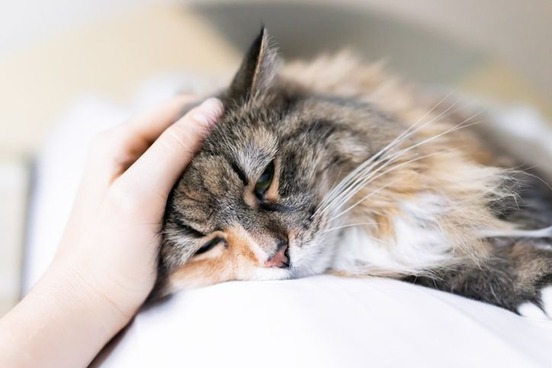
Oscitancy
noun 1 a : drowsiness usually demonstrated by yawns b : dullness, sluggishness 2 : the act of gaping or yawning
"I'm not tired!" protests the child, at the prospect of impending bedtime. To which you may reply, "Au contraire! Your oscitancy betrays you!"
Or not. We understand that such word nerdery may not go over well in all households. Regardless, oscitancy is a useful word. Its adjectival relation, oscitant, is also available when you want to describe one who is either yawning with drowsiness, or, less charitably and more obscurely, one who is lazy or stupid. The words are Latin in origin, from oscitare, "to yawn." That word's roots are os, meaning "mouth" (also at work in osculate, "to kiss," and in its variant or form, oral), and citare, "to put in motion," which is antecedent to such terms as recite, resuscitate, and excite.

Logy
We recommend logy as a self-descriptor rather than as a term to apply to another. It just doesn't sound very complimentary. The origins of the word are shrouded in uncertainty, with etymologists' best guess being a Dutch word log, meaning "heavy." That word is cousin to the Middle Low German luggich, meaning "lazy."
Logy has been a member of the English language since the mid-19th century, though it's never been featured much in literature. It does have an additional technical use: "lacking resilience; not recovering quickly when stress is released; having low snap," as in "a logy piece of rubber." One can imagine a figurative extension of such a use, the application of which to another person is also probably ill-advised.

Soporific
adjective 1 a : causing or tending to cause sleep b : tending to dull awareness or alertness 2 : of, relating to, or marked by sleepiness or lethargy
While an August afternoon might bring a soporific heat, soporific also functions in technical uses, as in "a medication with soporific effects." It's a noun too: a soporific is a sleep-inducing agent. English probably speakers borrowed soporific from the French, who'd made soporifique from Latin sopor, meaning "deep sleep."
Charlotte Brontë's Jane Eyre employs the word in the eponymous novel: "… fortunately, however, the heavy supper she had eaten produced a soporific effect: she was already snoring before I had finished undressing."
If you feel like an extra syllable would make this already impressive word still better, soporofical is ready to do the job.

Dozy
Dozy just sounds so relaxing, doesn't it? Perhaps it's the way it rhymes with cosy, or how it calls the word lazy to mind without dragging in the condemnation that word sometimes bears.
While dozy typically describes those inclined to doze, the word also can be used to mean "in a state of decay," as in "dozy timber" (which does sound pretty condemnatory, from a woodworking point of view).
Doze is believed to be of Scandinavian origin, with an ancient relation in the Old Norse dūsa, "to doze." In addition to its sleep-related meanings, doze can also mean "to be in a dull or stupefied condition."

Sleepify
verb : to make sleepy
While many English speakers have never heard sleepify in use, we think it's just what's been missing from conversations about all that bores or merely tires out: a dry lecture can sleepify the audience; one might be sleepified after a big meal; a bad movie might be horribly sleepifiying.
Historically, it's mostly been used adjectivally in the participle form sleepifying, but don't let that stop you from using it however you like:
General Morin, in his excellent work on Ventilation, observes concerning the House of Lords, "Several peers whom I consulted complained that the atmosphere of the rooms is heavy and sleepifying. They asserted that they were sometimes obliged to have the windows opened; but it should be borne in mind that the sittings take place in the evening after dinner, and are often prolonged to a late hour."
— "The Ventilation of the Houses of Parliament," The Lancet, 5 May 1866

Peepy
adjective : sleepy
Peepy is too cute a word, we think, to be mostly unknown outside of dialectal British English. Consider this our invitation to expand its use. We find it to be a charming and evocative synonym to sleepy, coming as it does from the "to peer out" and "to emerge" meanings of peep. Charles Dickens used the term in Dombey and Son (1848):
'So bluff!' cried Mrs Skewton, 'wasn't he? So burly. So truly English. Such a picture, too, he makes, with his dear little peepy eyes, and his benevolent chin!'
(Do not ask us what a benevolent chin is.)
Peepy has been in use since the late 17th century, so there's really no reason, other than ignorance, to avoid it.

Somnolent
adjective 1 : of a kind likely to induce sleep 2 a : inclined to or heavy with sleep : drowsy b : sluggish as if from sleep
If something a bit more dignified is called for in your sleep-talk, the word somnolent may be just the thing. It can describe what is likely to make one sleepy ("the fan's somnolent hum"), one who has in fact been made so ("warm and somnolent on a summer afternoon"), or something that seems figuratively sleepy, as in "a somnolent river winding through the quiet valley."
Like so many formal-sounding words somnolent is from Latin: somnolentus shares the meaning of our borrowing, and comes from somnus, meaning "sleep." Another somnus word is somnambulant, meaning "walking or having the habit of walking while asleep" and "resembling or having the characteristics of a sleepwalker; sluggish."

Sloomy
There's something tragic about such an excellent word being so underused. Sloomy clings by the frailest fibers to the fringe of the language, surviving only in dialectal British English, and barely at that. Reader, you can do something about this.
Also sorely underused are the noun and verb sloom. The former refers to a light sleep—that is, a doze; the latter means, fittingly, "to doze or slumber," but also "to become weak and flaccid; decay, waste" and "to move or wander slowly or silently; drift." All likely trace back to Middle English slume, meaning "slumber."

An Analysis of 'Dream'
Dream once referred to auditory or emotional sensations experienced while awake.
MORE WORD HISTORY >





